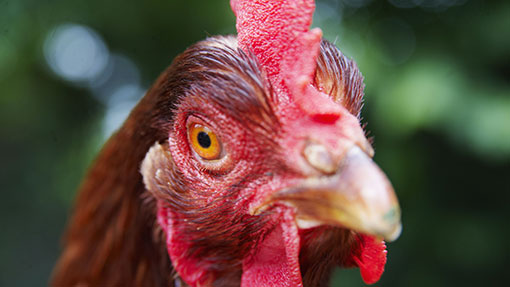Two thirds of flocks suffer smothering, survey says

The first large-scale research project quantifying the extent of hen smothering has suggested two-thirds of free-range flocks may be affected.
McDonald’s commissioned the survey as part of its UK Sustainable Egg Supply Group and worked with consultants FAI Farms to question every farmer supplying The Lakes Free Range Company and Noble Foods. Results were published in Vet Record.
In total, 206 questionnaires were used in the final research, which asked farm managers about their most recent completed flock. It found 60% of those surveyed had experienced problems with smothering, and 25.5 birds on average were lost in every incident, of which there were six each flock, on average.
See also: Brush up on your free-range farming and poultry disease knowledge
The research suggests that 50% of all flocks would have a problem with smothering at some point.
“Laying hens in commercial free-range systems are especially vulnerable to smothering because of the large number of birds kept in one area,” says the report.
“Considering there was an average of six incidences a flock, losing an average of 25.5 birds, the economic loss due to smothering for most large UK flocks could be regarded as insignificant; however for small free-range and organic flocks, where there may be many flocks a farm, the economic loss is likely to be important.”
The survey found blocking off corners and nest boxes, as well as walking birds more frequently were often-cited as strategies for reducing smothering.
McDonald’s has worked to improve the welfare of laying hens since it switched all fresh eggs to free range 15 years ago. Previous studies have examined the effect of ranging behaviour when trees are planted on hens’ ranges, and their subsequent planting on farms that supply the restaurant.
The full paper is entitled Smothering in UK free-range flocks. Part 1, incidence, location, timing and management. It was published in Vet Record earlier this year, and a follow up study will examine the correlation between smothering, disease and other welfare issues.
